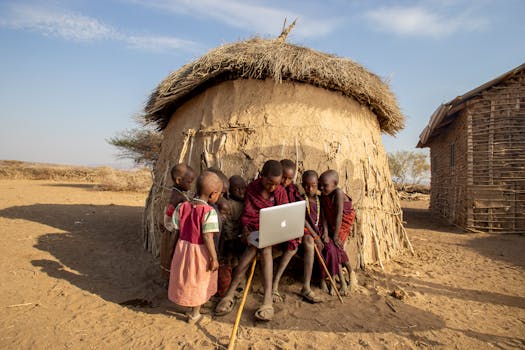
Empowering Communities: The Impact of Fiber Companies on Rural Connectivity in Africa – Fiber Optics & Connectivity
Fiber Optics & Connectivity has become a crucial aspect of modern life, and fiber companies are playing a significant role in bridging the digital divide in rural Africa. The lack of internet access in these areas has hindered economic growth, limited access to education and healthcare, and isolated communities from the rest of the world. However, with the advent of fiber companies, rural Africa is now experiencing a significant transformation.
The State of Rural Connectivity in Africa
Despite the rapid growth of internet penetration in Africa, rural areas still lag behind in terms of connectivity. According to the International Telecommunication Union (ITU), in 2020, only 22% of the rural population in Africa had access to the internet, compared to 58% in urban areas. This digital divide is largely due to the lack of infrastructure, limited economic resources, and harsh terrain, making it difficult for traditional telecom operators to provide services.
Fiber companies have stepped in to fill this gap, using innovative technologies and business models to provide high-speed internet access to rural communities. These companies are deploying fiber optic cables, often in partnership with local governments, to connect rural areas to the global network.
The Impact of Fiber Companies on Rural Communities
The impact of fiber companies on rural communities in Africa has been profound. With high-speed internet access, rural communities can now access a wide range of services, including education, healthcare, and financial services. Farmers can access market information, agricultural extension services, and online platforms to sell their produce, improving their livelihoods. Students can access online educational resources, and healthcare professionals can access medical information and consult with specialists, improving healthcare outcomes.
Fiber companies are also creating jobs and stimulating local economies. The deployment of fiber optic cables requires a significant workforce, creating employment opportunities for local residents. Additionally, the availability of high-speed internet access is attracting businesses, such as call centers, data centers, and software development companies, to rural areas, further boosting local economies.
Challenges and Opportunities
While fiber companies have made significant progress in bridging the digital divide in rural Africa, there are still challenges to be addressed. The high cost of deploying fiber optic cables, particularly in areas with difficult terrain, is a significant barrier. Additionally, the lack of digital literacy and awareness among rural communities can limit the adoption of internet services.
However, these challenges also present opportunities for innovation and growth. Fiber companies are exploring new technologies, such as wireless fiber and satellite connectivity, to reduce the cost of deployment and increase coverage. They are also partnering with local organizations to provide digital literacy training and awareness programs, promoting the adoption of internet services.
Conclusion
In conclusion, fiber companies are playing a vital role in empowering communities in rural Africa by providing high-speed internet access. The impact of their efforts is being felt across various sectors, from education and healthcare to agriculture and economy. As the demand for internet access continues to grow, fiber companies must continue to innovate and adapt to the unique challenges of rural Africa, ensuring that the digital divide is bridged and all communities have equal access to the benefits of the internet.




